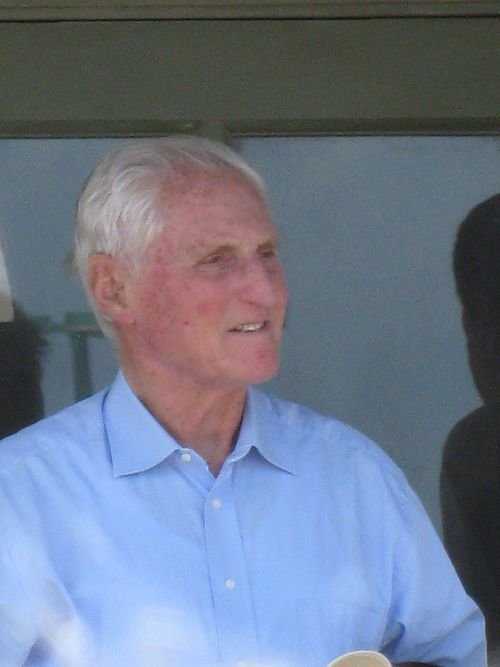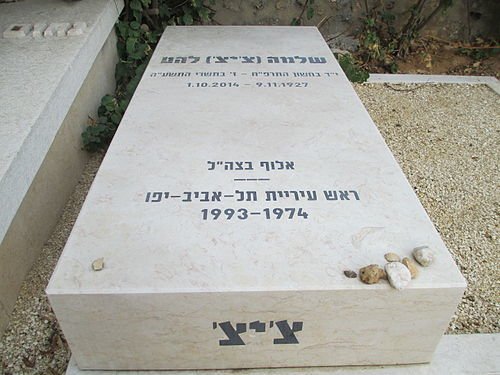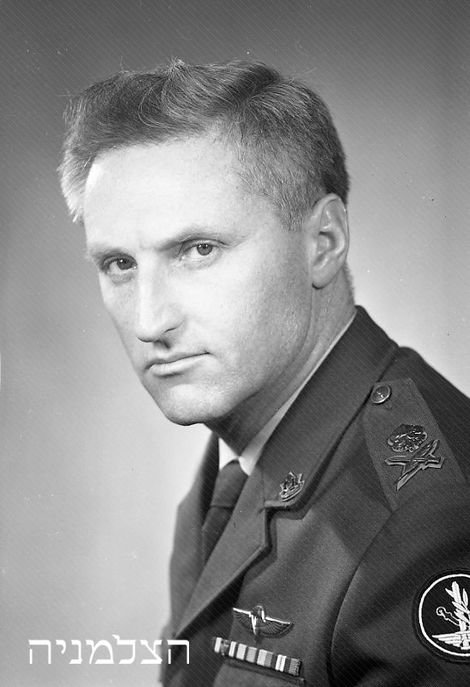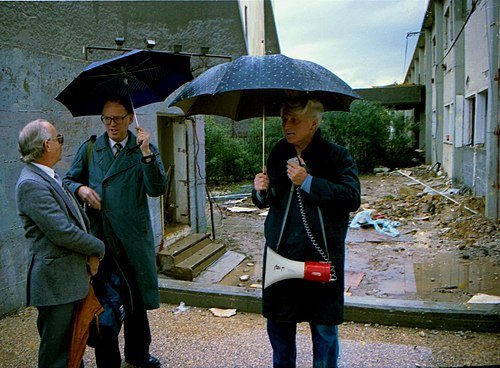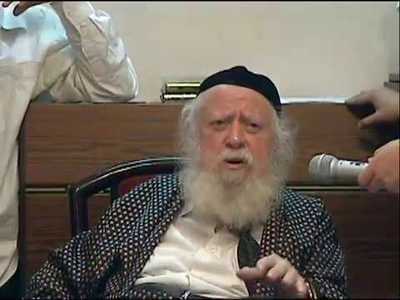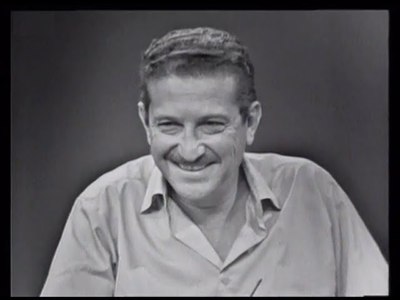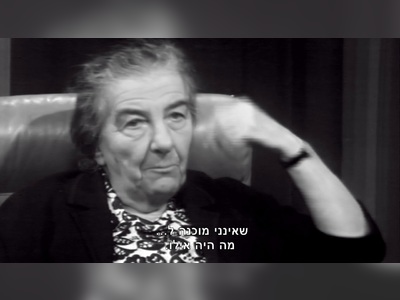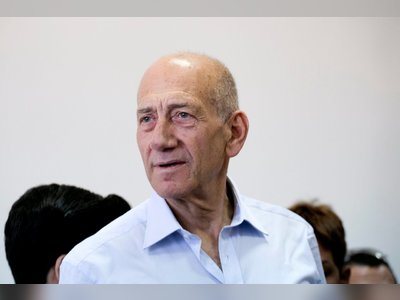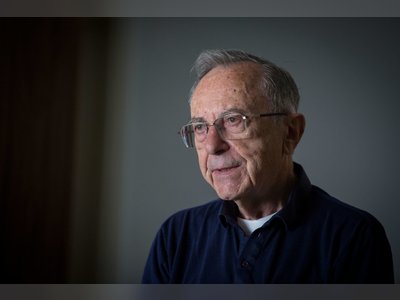Shlomo Lahat: The Mayor Who Transformed Tel Aviv
Shlomo Lahat, widely known as "Chich," was a prominent Israeli public figure who served as the mayor of Tel Aviv-Yafo for approximately 20 years, from 1974 to 1993. He is regarded as one of the dominant and proactive mayors in the city's history and a significant figure in Israeli municipal politics.
Early Life and Military Career
Shlomo Lahat was born as Salo Lindner on November 9, 1927, in Berlin, Germany, to a Jewish family. In November 1933, in response to the rise of the Nazis to power, he immigrated to Israel with his parents and settled in the town of Rehovot. In Rehovot, the family lived in a small apartment, and Lahat's mother worked as a house cleaner, while his father was a truck driver.
Lahat attended the Herzliya Gymnasium in Rehovot and later the Herzliya Gymnasium in Tel Aviv. The nickname "Chich" stuck with him from a young age when, as an eight-year-old, he shouted "Ziehen!" (meaning "Pull!" in German) while playing a rope-pulling game with friends who did not understand German.
During his youth, Lahat was involved with the "Shomer Hatza'ir" youth movement and the Gadna. In 1944, he joined the ranks of the Haganah, and from 1946, he served in its regular units. During the Israeli War of Independence, he served in the 52nd Battalion of the Givati Brigade as a platoon commander and later as a lieutenant commanding Company B, defending the outpost of Be'erot Yitzhak against the Egyptian army.
In this battle, he replaced Dov Aldubi, the company commander, who had been wounded. On February 26, 1948, he led a force sent to blow up the Abu Ghosh house, resulting in the deaths of 15 Arabs. On the night of May 15-16, he was in charge of evacuating the flooded settlement of Hartuv and all its residents to Kibbutz Uria.
As a platoon commander, he also participated in the battle for the capture of the Hulaikat strongholds in Operation Yoav. In Abba Kovner's book "Face to Face," Lahat was described as a symbol of courage.
After the establishment of the state of Israel, Lahat continued his military service and studied at the Hebrew University of Jerusalem for three years, completing his studies successfully. However, he interrupted these studies to attend the United States Army Command and General Staff College at Fort Leavenworth, Kansas, in the United States.
In 1967, following the Six-Day War and the capture of Jerusalem, Lahat was appointed as the governor of Jerusalem. He, along with his deputy, Major General Shmuel Gonen, and Jerusalem's mayor at the time, Teddy Kollek, decided to demolish the Mughrabi Quarter near the Western Wall and convert it into the expansive prayer plaza known today.
In April 1969, during the War of Attrition, Lahat was appointed as the commander of the Sinai Brigade (Brigade 252). Despite the daily shelling by Egyptian artillery forces, Lahat, as the brigade commander, recommended not attacking the Egyptians too forcefully to avoid expanding the scope of the conflict. In August 1969, he was promoted to the rank of Aluf (Major General).
In July 1970, Lahat was appointed as the head of the Manpower Directorate (Aka"i) at the General Staff Headquarters, a position he held until September 1972.
Mayor of Tel Aviv-Yafo
Lahat's connection to Tel Aviv began in his youth when he attended the Herzliya Gymnasium in the city. After retiring from the Israel Defense Forces in the early 1970s, he joined the liberal party.
In December of that year, he ran for the position of mayor of Tel Aviv-Yafo as the Likud candidate and was elected in February 1974. He served as mayor for three consecutive terms (in 1978, 1983, and 1988) and then, for the next three terms, was elected directly by popular vote.
In the last elections he ran in, in 1989, Lahat secured 55% of the votes, while his rival, Nathan Wulzinger, received only 19%. The Likud list in the city council won 12 seats compared to the 8 seats won by the Alignment list.
During his tenure as mayor, Lahat worked to transform Tel Aviv into a vibrant cultural and tourist center. Some of his notable initiatives included:
* In 1991, during the Gulf War, when a significant portion of Tel Aviv's residents left the city due to fear of missile attacks, Lahat declared, "Those who leave Tel Aviv also leave their homeland," sparking a public debate.
Public Activism
Following his mayoral term, Lahat continued his extensive public activism. He was a member of numerous associations and participated in a wide range of initiatives on various topics. For example:
* In 2009, for the 100th anniversary of Tel Aviv's founding, Lahat was chosen to lead one of the twelve torches on Mount Herzl during Israel's 61st Independence Day celebrations, in recognition of his contribution to the development of Tel Aviv.
Personal Life and Legacy
Shlomo Lahat resided in the northern part of Tel Aviv and was married to Zehava née Friczer, who managed the social science library at Tel Aviv University for many years. They had two sons, Dan Lahat, who was elected as a member of the Tel Aviv-Yafo City Council on the Green Party's ticket in the 2008 elections, and Avner Lahat.
Lahat had a close family connection to Yitzhak Rabin, one of the leaders of the Palmach, a Member of the Knesset, and Israel's Minister of Defense and Prime Minister.
Around five years before his death, Lahat was diagnosed with Alzheimer's disease. Despite his illness, he continued to attend cultural events until shortly before his passing. Shlomo Lahat passed away on October 1, 2014, at the age of 87, after being hospitalized due to severe infection. He was laid to rest in the Trumpeldor Cemetery in Tel Aviv.
With his passing, Israel lost a prominent public figure whose legacy includes the transformation of Tel Aviv into a thriving cultural and tourist hub, his dedication to public service, and his impact on the city's development and modernization.
- שלמה להטhe.wikipedia.org
